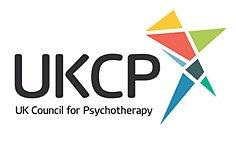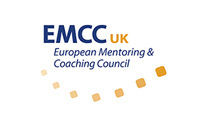Infidelity can significantly impact a relationship, but it does not necessarily mean the relationship is over. Many couples can recover and rebuild their relationship after infidelity with the help of therapy and open, honest communication.
What is Infidelity?
“People cheat on each other in a hundred different ways: indifference, emotional neglect, contempt, lack of respect, years of refusal of intimacy. Cheating doesn’t begin to describe the ways that people let each other down.” — Esther Perel
People may have different ideas about what counts as cheating. Some people may only consider it cheating if it’s a sexual act. Still, others may feel that any emotional connection or intimacy with someone else, whether online or in person, is a betrayal.
Infidelity can end a relationship, but it can also be an opportunity for a couple to work on their issues and rebuild their relationship. Sometimes, it takes ending the old relationship and starting fresh by committing to each other.
See the below examples considered infidelity:
- Physical Infidelity: A physical or sexual experience or connection with another person. Inclusive of one-night stands, paying for sex, meeting up with people found online, or casual sex.
- Emotional Infidelity: An emotional attachment with another person. Inclusive of speaking regularly with another person of deep and meaningful feelings, issues, and life goals or sharing personal information regularly about your life.
- Cyber Infidelity: An affair than happens entirely online. Inclusive of inappropriate texting, consistent messaging, video calls with sexual content, consistent video calls, using dating apps or using social media to interact or communicate with others.
- Object Infidelity: An attachment to something outside of the relationship can result in infatuation and neglecting the relationship. Inclusive of work, social media, a phone, or even a hobby.
- Financial Infidelity: Being deceitful about finances. Inclusive of how much they earn, how they earn money, owed debt, savings, loans, or hidden accounts or cash.
- Micro-cheating: Crossing clear lines within the relationships or actions that could bother the other person. Inclusive of flirting, with no interest in it becoming anything more.
- Combined Infidelity: A combination of more than one of the above, such as a sexual and emotional connection with another person or developing an emotional attachment to someone you met online.

Myths About Infidelity
Several myths about infidelity are commonly believed but are not necessarily true. Some of these myths include the following:
- Only men cheat: This is not true. Both men and women can be unfaithful in relationships, and studies have shown that the infidelity rate is about equal among men and women.
- Infidelity only happens in unhappy relationships: While it is true that dissatisfaction or unhappiness in a relationship can be a factor that leads to infidelity, it is not the only reason. People may cheat for various reasons, including a desire for novelty or excitement or simply because they have an opportunity to do so.
- People who cheat are morally bankrupt: Infidelity does not necessarily reflect on a person’s moral character. People who cheat may have a lapse in judgment or make a mistake, but it does not necessarily mean they are bad people.
- Infidelity is always the end of a relationship: While it can undoubtedly be a significant breach of trust and lead to the end of a relationship, it is not always the case. Some couples can work through the pain and betrayal caused by infidelity and come out stronger on the other side.
- Infidelity is only physical: Infidelity can also be emotional, such as forming an intimate connection with someone outside of the relationship or sharing intimate thoughts and feelings with someone other than one’s partner.
What Are The Main Causes of Infidelity?
The causes of infidelity are vast and often highly personal—the reasons behind infidelity range from common causes to unique circumstances.
Contributing factors can be a lack of sexual satisfaction within the relationship or a lack of close and meaningful interactions with your partner. Healthy relationships should balance affection, communication, safety, stability, and sexual or emotional intimacy. These factors can build the foundation of a fulfilling relationship. When these attributions lessen, the relationship may be at risk of infidelity. Feeling a disconnect or falling out of love will also affect the relationship and invite a bigger risk.
Cultural and family background can also contribute to infidelity, such as being raised within an environment or culture that normalises infidelity. That person may not feel that cheating and affairs are that much of a betrayal and that it is the expected course of the marriage.
Self-esteem, fear of intimacy or commitment, or mental health issues such as anxiety and depression can invite questions such as Why is he with me? Does she have an ulterior motive? They are probably cheating on me anyway; I feel pressured in this relationship. These questions and statements can lead to unconscious decisions that risk the relationship or push the other person away. It can also be an ego boost for those who feel low about themselves or unequal in the relationship.
Can You Prevent Infidelity?
To prevent infidelity, it can be helpful to remember that relationships need nurturing, care and attention. Being open and honest with your partner about your expectations and definitions of infidelity and monogamy is essential. By setting clear boundaries and understanding each other’s needs, you can avoid future issues and ensure that both partners respect each other’s boundaries.
Here are some tips for nurturing and for keeping relationships alive:
- Communicate openly and honestly: Good communication is key to any healthy relationship. Ensure you are open and honest with your partner about your thoughts, feelings, and needs.
- Show appreciation and gratitude: Take time to show your partner that you appreciate and value them. This can be through small gestures like saying “thank you” or writing a note to express appreciation.
- Practice active listening: When your partner speaks, try to listen and understand what they are saying. This means not just hearing their words but also paying attention to their body language and nonverbal cues.
- Make time for each other: Setting aside dedicated time for just the two of you to connect and spend quality time together is essential. This could be a date night or an evening at home cuddled on the couch.
- Practice forgiveness: No relationship is perfect, and sometimes you or your partner make mistakes. It’s important to practice forgiveness and let go of grudges to move forward and strengthen your bond.
- Keep the romance alive: It’s easy to fizzle out in long-term relationships, but it’s essential to make an effort to keep the spark alive. This could be through small gestures like surprising your partner with a gift or planning a special date.
Therapy can be a great help in rebuilding essential positive and uplifting attributes.

Can We Move Past Infidelity?
Healing from infidelity involves rebuilding trust and re-establishing a sense of connection and intimacy with one’s partner. This process can be complex and may benefit from the help of a therapist or counsellor to facilitate difficult conversations and provide support as couples work through their emotions.
Relationships following infidelity can be fragile. There can be overwhelming feelings of confusion, loss, anger, betrayal, and disbelief. This may look like the end for some, but for others, it can be the beginning of a new much more fulfilling chapter.
Therapists can support couples in discussing fears, rebuilding trust, looking deeper into the causes of infidelity, and the reasons they became a couple to create a strong, successful, and happy commitment going forward.
Contact Leone Centre to speak to one of our experienced and professional therapists.
- About the Author
- Latest Posts
Co-founder and director of Leone Centre, 20+ years of experience in supporting people, and offering valuable knowledge through Couples Counselling and Individual Counselling. Before becoming a therapist, I worked in the financial sector.
Talk with a Leone Centre Professional
If you do feel like you need some help and support, our Leone Centre professionals are available 7 days a week. Call us on 020 3930 1007. We can also provide fast track therapy.
We can offer in-person counselling in London appointments at our head office in Fulham and our offices in Kensington, Wimbledon and Belgravia, We also service Victoria, Putney, Chelsea, Knightsbridge, Mayfair, and City of London.
In addition, we offer Online Therapy appointments wherever in the world you are located, should this better fit around your existing commitments or if you are not able to attend an in-person appointment.















